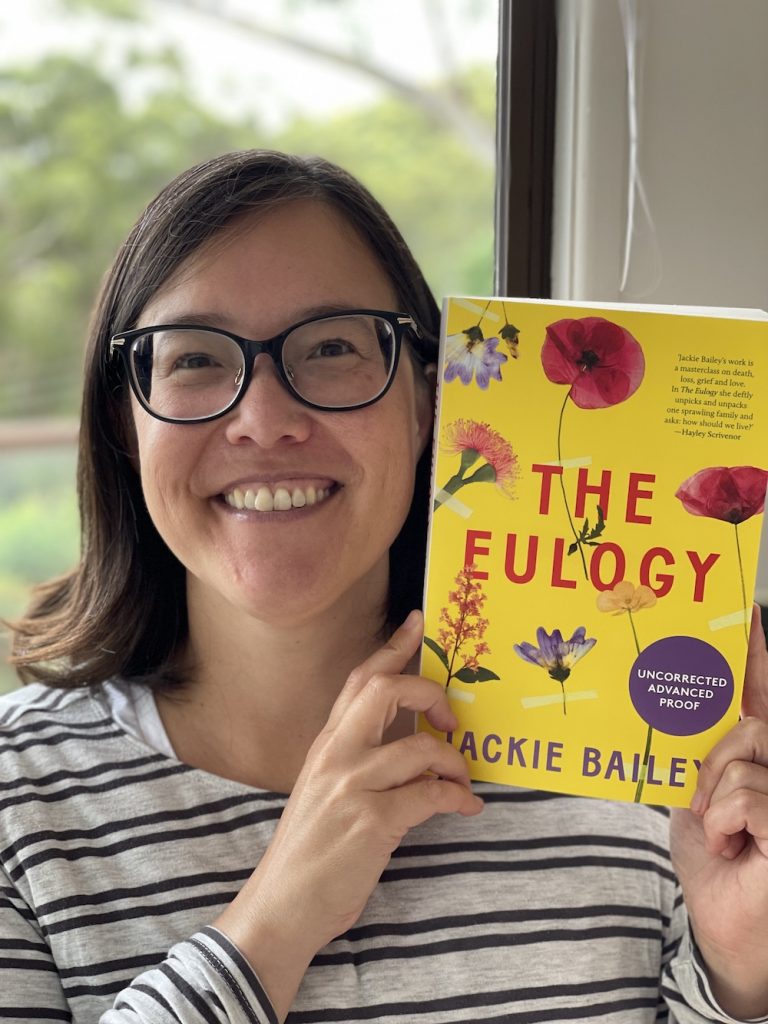
My debut autofiction novel ‘The Eulogy’ is coming out in June 2022, and today I received an advance copy of the book. The book is structured around a fictitious guide on how to write a eulogy. Which made me think, maybe I should write an actual guide on how to write a eulogy.
As a funeral director and celebrant, I am often asked about how to write a eulogy – what it should include, how long it should go for, who should do it. People often don’t have long to prepare, as we generally hold funerals within a week or so of someone’s passing in Australia.
The most important thing to remember when you embark on writing the eulogy is: it does not have to be perfect.
The second thing: it does not have to be long. I generally suggest no more than five minutes, which some people might stretch to seven or ten minutes, and that is fine. But you want people at a funeral to stay with you, present and engaged. And too long can frankly also be too emotionally taxing for you, the person delivering the eulogy.
My third piece of advice: it is completely OK if you cry. Sometimes people worry that they won’t be able to make it through the speech. But honestly, the bravest thing a person can do at a funeral is to stand up and weep. It gives everyone else permission to do so as well, and to feel all the feelings that they have come together to share. It can be nice to ask someone you love to come and stand with you as you deliver the eulogy, and you can always line up the celebrant as you back-up to read out anything you can’t.
What is a eulogy?
Traditionally, the eulogy is the speech delivered at a funeral which gives a bit of a story of a person’s life. You mention when and where they were born, what they did for work, who their family was. Other funeral speeches might simply be anecdotes, or messages to the deceased and their loved ones. The difference is, a eulogy includes these sorts of biographical details. I generally advise people that a eulogy should mention key milestones such as marriage, work, children; and also other details like what they loved doing or eating; and the legacy they leave behind. By ‘legacy’ I don’t only mean work or children, but also perhaps the imprint they leave, their sense of humour, their generosity, their integrity – the aspects of the person that you hope live on in everyone who is present.
Why deliver a eulogy?
At other times and perhaps in other funeral speeches, you will doubtless share memories and anecdotes. The eulogy is different because it gives you the narrative frame for the person’s whole life.
A eulogy is also helpful because most of the time, the people present at the funeral may have known the deceased from one part of their life but might not know about other parts of their life. So the eulogy is the first chance some people might hear about their loved one’s childhood, whilst others might learn about the deceased’s their work life.
In my time as a funeral director and celebrant, I have noticed this beautiful thing happen. When I visit a family, I am often the first ‘stranger’ the family has spoken to since their person died; someone who did not know their person. The family begins to tell me the story of their person. In so doing they start to create the story, weave a new story, tell and re-tell their person’s story from a new point of view, the place after that person’s death. Touching a person’s body can be so helpful in understanding at a cellular level that the person is really gone. Similarly, telling a story about the person, starting to use the past tense, remembering forgotten details of the person’s life story, is this deeply human and I believe, very crucial way of assimilating the knowledge that a person has died.
A eulogy also honours and celebrates the person’s whole life, and not just the last weeks or months or years of that life. This is helpful in shifting our focus from, say, the hospital bed or the suffering in the last period of a person’s life. The eulogy helps us to see the death as part of a larger whole, and in this way we start to gain perspective, and perhaps wisdom.
Contact me
Get in touch any time for a chat about your needs.
0428 576 372
jackie bailey writes at gmail dot com
